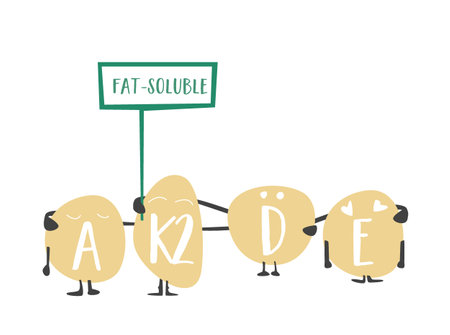Understanding Vegetarian and Non-Vegetarian Diets for Dogs
When it comes to feeding our furry companions in India, the choice between vegetarian (veg) and non-vegetarian (non-veg) diets often sparks lively discussions among pet parents. This conversation is deeply rooted in the diverse cultural and religious practices across the country, where food choices are not only about nutrition but also about tradition and beliefs. In many Indian households, especially those following Hinduism or Jainism, a vegetarian lifestyle is common, and this often extends to their pets as well. On the other hand, non-vegetarian diets—comprising chicken, fish, eggs, or mutton—are preferred in regions and communities where animal proteins are a dietary staple. A typical veg diet for dogs in India includes ingredients like rice, paneer, curd, vegetables such as carrots and peas, lentils (dal), and sometimes commercial vegetarian dog food. Non-veg diets, meanwhile, focus on animal proteins mixed with rice or chapati and supplemented by vegetables for balanced nutrition. Over generations, Indian pet owners have tailored their dogs’ meals based on what’s available at home and what aligns with family values. As the pet care industry grows and more families welcome dogs into their homes, understanding the pros and cons of each dietary path becomes crucial for ensuring our pets lead healthy, happy lives.
Indian Cultural Perspectives on Feeding Dogs
When it comes to deciding between a vegetarian (veg) or non-vegetarian (non-veg) diet for dogs in India, cultural and religious beliefs play a significant role. India is a country with deep-rooted traditions and diverse communities, each with unique perspectives on food — not just for humans but also for their pets.
Traditional Indian Practices
Traditionally, many Indian households have preferred feeding their dogs home-cooked meals instead of commercial dog food. These meals often reflect what the family eats, which can be predominantly vegetarian in many regions. Common ingredients include rice, chapati, dal, paneer, and curd. Non-veg items like chicken or eggs might be included in homes where meat is consumed.
Religious Influences: The Role of Hindu Beliefs
Hinduism, which is practiced by the majority in India, encourages ahimsa (non-violence) and respect for all life forms. In several Hindu families, this extends to feeding their pets a vegetarian diet. Some even consider non-veg food as tamasic (promoting lethargy or ignorance), and prefer sattvic (pure) foods for themselves and their animals. However, this is not universal; dietary practices can vary widely within Hindu communities themselves.
Regional Variations in Pet Nutrition
Indias vast geography brings about notable regional differences in dietary choices for both people and pets:
| Region | Common Dog Diet | Cultural Notes |
|---|---|---|
| North India | Mixed veg & non-veg (roti, rice, chicken) | Diverse diet; both veg and non-veg are common |
| South India | Mainly rice-based; includes curd, vegetables, sometimes fish or eggs | Seafood may be more prevalent along the coasts |
| West India (e.g., Gujarat) | Mainly vegetarian (dal, rice, milk products) | Strong veg culture due to Jain and Gujarati influences |
| East India (e.g., Bengal) | Rice, fish, occasional chicken or mutton | Fish is a staple even in pet diets in some areas |
The Impact of Urbanization and Modernization
In urban areas like Mumbai, Bengaluru, and Delhi, exposure to global trends has led to increased acceptance of commercial dog foods — both veg and non-veg variants. Younger pet parents may prioritize nutritional science over traditional practices but still remain influenced by family customs.
Ultimately, the choice between a veg or non-veg diet for dogs in India is shaped by a mix of tradition, religion, region, and evolving modern lifestyles. Understanding these cultural nuances is essential before making any dietary decision for your furry friend.

3. Nutritional Needs of Dogs: What Science Says
Understanding what our furry friends truly need in their diet is the first step to making a good choice between veg and non-veg dog food, especially here in India where family values, religious beliefs, and local traditions often influence what we feed our pets. So, what does science say about the nutritional needs of dogs?
Essential Nutrients for Your Dog’s Well-being
Dogs require a balanced mix of proteins, fats, carbohydrates, vitamins, and minerals to thrive. Protein is especially important for muscle development, energy, and repair of body tissues. While dogs are technically omnivores and can adapt to various diets, their ancestral roots as carnivores mean they have certain requirements that are more easily fulfilled with animal-based foods.
Veg vs Non-Veg Sources: What’s the Difference?
Non-veg diets provide complete proteins containing all essential amino acids, such as those found in chicken, fish, or lamb. These animal sources also offer vital nutrients like vitamin B12, iron (in heme form), taurine, and omega-3 fatty acids (EPA & DHA), which are crucial for heart health and shiny coats.
On the other hand, veg diets rely on plant-based proteins such as soybean meal, lentils (dal), chickpeas (chana), rice, and peas. While these can meet basic protein requirements if combined properly, they may lack certain amino acids like taurine and methionine unless fortified. Plant sources of iron and vitamin B12 are also less bioavailable to dogs. Indian pet food brands often add synthetic supplements to fill these gaps in veg formulas.
Expert Opinions from Indian Veterinarians
Most Indian vets agree that both veg and non-veg diets can work for dogs if they are carefully formulated. Dr. Shweta Singh from Mumbai says, “It’s possible to raise a healthy dog on a vegetarian diet in India if pet parents pay attention to supplementation and regular vet check-ups.” However, she cautions that home-cooked veg meals often miss critical nutrients unless guided by a professional.
Dr. Arjun Rao in Bengaluru points out that active breeds or working dogs may benefit more from non-veg diets because of higher protein quality and digestibility. He advises owners to always read labels and consult with a veterinarian before switching diets.
Ultimately, your dog’s age, breed, activity level, and any health concerns should guide your choice. The key is balance—whether you choose veg or non-veg options for your beloved companion in India.
Benefits and Challenges of a Pure Veg Diet for Dogs
Pros and Cons of a Plant-Based Diet for Dogs
Many Indian pet parents are curious about offering their dogs a pure vegetarian (veg) diet, especially in households where non-veg food is avoided for cultural or religious reasons. While dogs are naturally omnivorous and can adapt to plant-based diets, there are several pros and cons to consider:
| Pros | Cons |
|---|---|
| – Aligns with family’s dietary values – Easier to source ingredients in veg homes – Reduces exposure to meat-borne pathogens – Can be budget-friendly if using local produce |
– Risk of protein and amino acid deficiencies – Requires careful planning to balance nutrients – Some dogs may not enjoy the taste – Limited commercial veg dog food options in India |
Popular Indian Veg Ingredients Used in Dog Diets
Indian households have a rich variety of vegetarian foods that can be incorporated into a dog’s diet. Here are some commonly used ingredients:
| Ingredient | Nutritional Value | Notes for Pet Parents |
|---|---|---|
| Paneer (Cottage Cheese) | High in protein, calcium | Offer in moderation due to fat content; avoid salted or spiced paneer |
| Dals (Lentils) | Good source of protein, fiber, iron | Cook thoroughly; avoid adding spices like onion/garlic powder |
| Rice & Whole Wheat Roti | Carbohydrates, energy, some vitamins | Serve plain; no ghee, salt, or masalas; chapati pieces should be small and soft |
| Pumpkin & Carrots | Vitamins A & C, fiber, antioxidants | Easily digestible when boiled; great for gut health |
| Coconut & Peanuts (unsalted) | Healthy fats, minerals, protein (peanuts) | Use sparingly; ensure no added salt or sugar; beware of allergies |
| Soy Chunks/Tofu (Occasional) | Plant protein, iron, calcium (tofu) | Introduce slowly as some dogs may be sensitive to soy products |
Practical Challenges Faced by Indian Pet Parents on a Veg Diet Plan for Dogs
- Nutritional Balance: It can be tricky to meet all nutritional requirements—especially protein, vitamin B12, taurine, and certain essential amino acids—without animal-based sources.
- Lack of Commercial Options: Most Indian dog food brands offer few or no pure veg options. Home cooking becomes necessary but requires time and knowledge.
- Picky Eaters: Some dogs may reject certain plant-based foods due to unfamiliar textures or tastes.
- Cultural Beliefs vs. Veterinary Advice: Family preferences may not always align with what vets recommend for canine health. Consulting an experienced vet is crucial before making major diet changes.
In Summary: Is a Pure Veg Diet Right for Your Dog?
A pure veg diet is possible for dogs in India but must be planned thoughtfully. Regular consultation with your vet and careful ingredient selection are key. If you choose this route for cultural or ethical reasons, pay close attention to your pets health markers and adjust the diet as needed for their wellbeing.
5. Benefits and Challenges of a Non-Veg Diet for Dogs
Advantages of a Non-Vegetarian Diet for Dogs
Non-veg diets are quite popular among Indian pet parents, especially in metro cities like Mumbai, Delhi, and Bengaluru. One of the main advantages is that animal protein sources like chicken, mutton, fish, and eggs closely match the nutritional needs of dogs. These foods provide high-quality proteins, essential amino acids, and vitamins such as B12 that are not found in plant-based ingredients. Many pet owners notice shinier coats, higher energy levels, and better muscle development in their dogs after switching to a non-veg diet.
Commonly Used Meats in India
In Indian households, chicken is the most common meat given to dogs because it is affordable and easily available from local markets or online stores. Fish (like rohu or catla) is also fed in coastal areas and Bengal, while eggs are a go-to source for many families when they want a quick protein boost for their pets. Mutton is sometimes included but usually reserved for special occasions or when recommended by the vet due to its higher fat content and cost.
Challenges Associated with Non-Veg Diets
Despite these benefits, there are some challenges you should consider before feeding your dog a non-veg diet. First, not all dogs digest meat equally well—some may develop allergies or stomach upsets, particularly if introduced suddenly. Also, in India’s hot climate, raw or undercooked meat can spoil quickly and lead to foodborne illnesses such as salmonella. Religious beliefs within the family may also influence whether non-veg foods can be prepared at home.
Tips for Safe Feeding
To keep things safe and healthy for your furry friend, always cook meats thoroughly (boiling or steaming is best), avoid adding too much salt or masala (spices), and remove bones to prevent choking hazards. If you’re buying commercial dog food with non-veg ingredients, opt for reputed Indian brands that follow FSSAI guidelines. Lastly, introduce new proteins gradually and monitor your dog’s health and stool consistency to catch any issues early.
Conclusion: Is Non-Veg Right for Your Dog?
Non-veg diets can provide great health benefits if managed carefully, but every dog is unique. Consult with your local vet before making major changes to your pet’s diet—especially since regional preferences and traditions play a big role in what’s considered “normal” food for pets in India.
6. Common Myths Around Veg and Non-Veg Diets in India
Myth 1: Dogs Cannot Survive on a Vegetarian Diet
This is one of the most widespread beliefs among Indian pet parents, especially in families following vegetarian traditions. The truth is that dogs are omnivores and can thrive on a well-balanced vegetarian diet, provided it meets all their nutritional needs. Several Indian dog owners from cities like Ahmedabad and Pune have shared stories of their pets enjoying good health on home-cooked veg meals, enriched with paneer, dahi, dal, rice, and selected vegetables.
Myth 2: Non-Veg Food Makes Dogs More Aggressive
A common concern in many Indian households is that feeding meat will make dogs aggressive. However, there is no scientific evidence supporting this claim. Behavioural changes in dogs are influenced by factors like training, environment, and genetics rather than their food. Many pet parents from Delhi and Hyderabad report that their dogs remain affectionate and well-mannered regardless of whether they eat chicken or chapati.
Myth 3: Veg Diets Are Always Cheaper
It is often assumed that a vegetarian diet is more budget-friendly. While this may be true for some ingredients, a complete veg diet for dogs often requires supplements like taurine and vitamin B12 to ensure balanced nutrition. Real-life experiences from pet owners in Bengaluru show that preparing balanced homemade veg meals sometimes costs as much as feeding simple non-veg dishes like boiled eggs or chicken stew.
Myth 4: All Indian Breeds Do Well on Veg Diets
Some believe Indian breeds such as Indie or Rajapalayam can naturally thrive only on leftover roti and sabzi. In reality, each dog is unique, and their dietary requirements depend more on age, activity level, and health status than breed alone. Vets across India recommend customising diets to individual needs rather than relying on generalisations.
Real Experiences From Indian Dog Owners
Many experienced dog parents in Mumbai and Kolkata have tried both diets over the years. They emphasise observing your pet’s coat shine, energy levels, digestion, and regular vet check-ups to judge what works best—rather than following old myths blindly.
Key Takeaway
The decision between veg and non-veg should be made with facts, not fear or tradition alone. Consulting an Indian vet who understands local food habits is always the best route for your pet’s health.
7. Choosing the Right Diet for Your Dog in India
When it comes to selecting the best diet for your dog in India, there is no one-size-fits-all answer. Each pet has its own unique needs and every family faces different circumstances. Here’s how you can make a mindful choice that suits both your furry friend and your home.
How to Assess Your Pet’s Unique Needs
The first thing to consider is your dog’s age, breed, activity level, and any health issues. For example, a playful Indian Pariah puppy might have different nutritional requirements compared to a senior Shih Tzu. If your dog has allergies or sensitive digestion, this may also influence whether a veg or non-veg diet is more suitable. Consulting with a local vet is always the safest bet, as they understand common regional health patterns in Indian dogs.
Budget Considerations
Food costs play a big role in Indian households. Non-veg diets—especially those including chicken, fish, or eggs—can be more expensive than vegetarian options like paneer, lentils (dal), rice, and vegetables. However, high-quality packaged veg dog foods may also cost a premium. It’s important to calculate not just the monthly expense but also think about long-term health and possible vet bills if nutrition isn’t balanced.
Availability of Ingredients
In many parts of India, especially in small towns and villages, fresh meat or specialty dog food ingredients might not be easily available. On the other hand, staples like rice, chapati, curd, green veggies, and pulses are found everywhere. Some families follow religious or cultural practices that exclude meat from their homes entirely—this naturally affects the pet’s diet too.
Suggestions Based on Lifestyle and Local Situations
If you have a busy lifestyle in cities like Mumbai or Bengaluru and rely on commercial dog food brands, look for ones that suit your beliefs (like vegetarian kibble) but ensure they meet AAFCO standards. If you live in a joint family where home-cooked meals are the norm, you can balance homemade veg diets with supplements recommended by your vet. For working professionals who travel frequently, dry kibble (veg or non-veg) offers convenience.
Final Thoughts
No matter which side you lean towards—veg or non-veg—the most important thing is that your pet gets complete nutrition tailored to their needs. The Indian context brings unique challenges and opportunities; listen to your vet’s advice and stay observant about your dog’s energy levels, coat quality, and overall happiness. With thoughtful planning and care, you can provide a wholesome diet that keeps your canine companion healthy and thriving amidst India’s colourful chaos.

